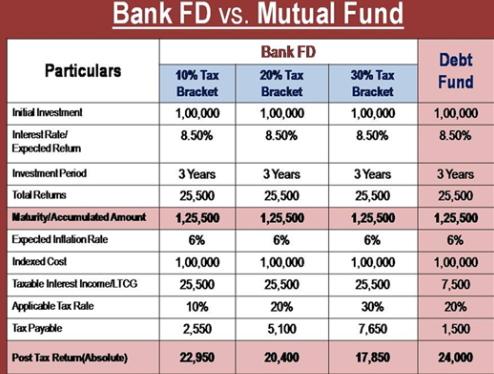
Money Mistakes Your Kids Should Make: A Path to Financial Wisdom
 Shruti Sharma -
Sep 15, 2023
Shruti Sharma -
Sep 15, 2023
Teaching children about money is a crucial aspect of their upbringing, yet it's often accompanied by the fear of them making costly mistakes. However, it's essential to recognize that some financial blunders can be valuable learning experiences. Investocafe cares for the overall financial well-being of our customers and their family and understands the anxiety parents are having about financial habits of their wards. So in this article, we will explore the concept of allowing kids to make money mistakes, why it's beneficial, and how parents can guide them through this journey.
The Importance of Financial Education
The Foundations of Financial Literacy - Financial education is a cornerstone of preparing children for the responsibilities of adulthood. It equips them with the knowledge and skills needed to manage their finances effectively.
Learning Through Mistakes
The Power of Experience - One of the most effective ways for children to grasp financial concepts is through experience. Making mistakes can be a powerful teacher, and financial blunders, when managed correctly, offer valuable lessons.
The Money Mistakes They Should Make
Allowance Mismanagement - Giving children an allowance and letting them decide how to spend it can lead to choices that might not always align with parental priorities. This experience teaches budgeting and decision-making.
Impulse Buying and Regret- Allowing kids to make impulsive purchases with their money can lead to buyer's remorse. It teaches the importance of thoughtful spending and planning.
Saving and Delayed Gratification - Children might spend all their money at once and later wish they had saved for something more significant. This teaches the value of saving and delayed gratification.
Peer Pressure and Money - Children may spend money to fit in with their peers, realizing later that it's not a sustainable or fulfilling approach. This experience helps them understand the influence of peer pressure on financial decisions.
Parental Guidance
Creating a Safe Space for Mistakes - Parents should create an environment where children feel safe to make money mistakes. This means allowing them to experience the consequences of their decisions within reasonable limits.
Open Communication - Encouraging open and non-judgmental communication about financial matters is crucial. Children should feel comfortable discussing their financial choices and seeking guidance.
Turning Mistakes into Teachable Moments
Reflecting on the Mistake - After a financial blunder, it's essential to encourage children to reflect on what went wrong and why. This self-analysis enhances their financial awareness.
Problem-Solving Skills - Helping children brainstorm solutions to rectify their mistakes fosters problem-solving skills. It empowers them to take control of their financial decisions.
Teaching Responsibility and Accountability
Ownership of Mistakes - Children should understand that they are responsible for their financial decisions. This sense of ownership encourages accountability.
Preparing for Future Financial Success
Building Resilience - Experiencing and overcoming financial mistakes helps children build resilience. They learn that setbacks are a natural part of life.
Lifelong Financial Skills - Ultimately, the mistakes children make today can lead to a lifetime of financial wisdom. They'll carry these lessons into adulthood, making informed decisions about saving, investing, and spending.
Empowering Future Financial Stewards
Allowing children to make money mistakes is not about letting them fail but about providing opportunities for growth. These experiences shape them into responsible, financially literate adults who are better equipped to navigate the complexities of the modern financial world. As parents, our role is not only to shield them from financial missteps but to guide them through the process of learning from them.
References:
- Gudmunson, C. G., & Danes, S. M. (2011). Family Financial Socialization: Theory and Critical Review. Journal of Family and Economic Issues, 32(4), 644–667.
- Bruhn, M., Garrett, E., & Munro, L. (2007). The Role of Allowances in Children's Consumer Socialization. Young Consumers, 8(3), 197-209.
- Lusardi, A., & Mitchell, O. S. (2007). Baby boomer retirement security: The roles of planning, financial literacy, and housing wealth. Journal of Monetary Economics, 54(1), 205-224.
- Sherraden, M. (2010). From financial literacy to financial capability and well-being. Journal of Sociology and Social Welfare, 37(4), 123-146.
To get in touch please visit us at investocafe.com













